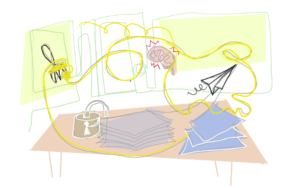In a recent improvement blog post by the IHI, President Emeritus Don Berwick talked about the evolving changes facing health care leaders today.
He highlights the bright side of the pandemic in terms of creativity and innovation, and the toll it took on people, workforce and the system, on the other side. He emphasized how non-health care determinants of health like social, economic, and environmental factors are becoming increasingly higher priorities, and we should approach healthcare improvement in a more holistic and inclusive manner think beyond the walls of our facilities.
This brings bigger challenges to healthcare leaders who in many instances deal with improvement in a vacuum or as one-off endeavors that magically would make a sustainable impact, which rarely happens as we know from experience.
We could see before us how the world is changing at all fronts, and managing healthcare in such turbulent climate is becoming a very daunting task. This necessitates above all, a shift in the mindset of healthcare leaders who are fixated on day-to-day affairs, and if it happened that there are forward-thinking leaders, they often lack the skills, methods, and tools to deal with such complicated agenda.
Berwick mentioned co-designing with teams for better future, and if we take that to the larger scale we should aim for better collaboration across the eco-system and bridge the “chasms” that exist between different entities in order to make a real lasting impact. He also mentioned that we have the methods but we need better aims, the latter I couldn’t agree with more, but I’m not sure if the current methods that we used on micro and meso levels would be enough for macro level improvements.
This is the time where we need to take a hard look at our approaches in decision making and problem solving, and bravely ask: are we well equipped to manage healthcare in the face of the VUCA conditions we live in today?




